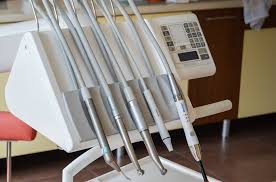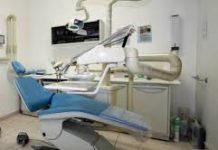Baby teeth.
Milk teeth, or deciduous teeth or primary teeth, are the first set of teeth that come in in the mouth. Milk teeth are different from permanent teeth, but their importance is not lesser, nor they have to be neglected just because they will fall and be replaced.
Primary teeth form and develop during the embryonic phase and erupt (come in the mouth) at about six months of age; between 6 and 12 months of age, the first milk teeth to erupt are usually the lower incisors, the two lower front teeth, followed by the upper front teeth. Between 9 and 33 months of age, the lateral incisors erupt, then the canines, the first molars and the second molars, that are the last to erupt.
Baby first tooth. Milk teeth are 20.
As temporary teeth, milk teeth are important for eating and chewing, smiling, and talking, but they have another fundamental role because they are like a guide for the permanent teeth to come in the proper position and each milk tooth preserves the space for the permanent tooth that is under it.
A milk tooth is different from the permanent one because its enamel is thinner, and so it looks whiter, it has a different appearance and its roots are shorter and thinner than the roots of a permanent tooth. When a permanent tooth reaches a certain point in its development it can erupt and pushes away the milk tooth; this process is called exfoliation.
Primary teeth will remain until the age of 12 years when the last molars would probably fall out; by age 21, all 32 of the permanent teeth have usually erupted.
If primary teeth are not properly cleaned and cared, this can result in a number of problems. It is important for parents and carers to teach the children to take care of their teeth and to follow a healthy diet.
Primary teeth.
Tooth decay in a young child can lead to infections and if a primary molar tooth has to be extracted due to severe tooth decay, the guide and space for the permanent successor might be lost.
The space available for the permanent tooth can be reduced, resulting in crowding or misalignment of the permanent tooth.
Moreover, many studies have demonstrated that children who experienced tooth decay in their primary teeth had a great risk of developing tooth decay in their permanent teeth.
Milk teeth.
The dentist will check the growth and the development of the milk teeth since the early years of life and will correct and reassure the parents for any dysfunctions or abnormalities.





